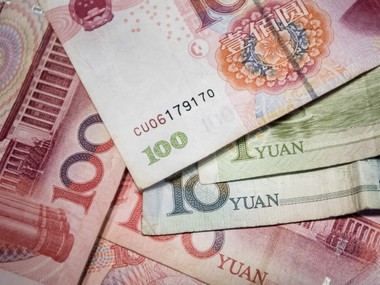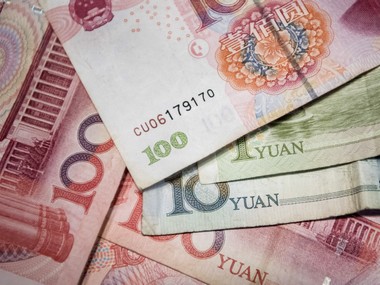The State Bank of Pakistan made a rather strange announcement a few days ago. A notice by the bank informed the public that the bank had carried out comprehensive policy related measures to ensure that both private and public sector enterprises could use the Chinese yuan for bilateral trade and investment activities. Even more puzzling to financial circles was the earlier announcement by the Foreign Office spokesperson that the two countries would “actively” use bilateral currencies for trade and investment. The problem is that the bilateral currency swap agreement between the two countries was signed during the time of prime minister Yousaf Raza Gilani well over six years ago. Apparently, that never really took off, with Chinese traders refusing to accept Pakistani currency for any kind of swap or otherwise.[caption id=“attachment_3148480” align=“alignleft” width=“380”]  Yuan. AFP[/caption] The original agreement signed in 2011, was for a period of three years and should have normally have been renewed without too much fanfare or discussion in the media. However, a number of other allied events made the announcement interesting in terms of Pakistan-China relations. Firstly, the announcement came as part of the signing of a new Long Term Plan(LTP) 2017-30 in the second week of December. Even while extolling the many opportunities presented by the plan, Minister for Planning and Development Ahsan Iqbal struck a note of caution, clarifying that even while the currency swap would facilitate the growth of the China-Pakistan Economic Corridor, the yuan would not be used inside Pakistan. This was in reference to a furore created earlier when at a Senior Officials Meeting (SOM) to discuss the LTP, the Chinese side was reported to have demanded that its own currency could be made legal tender in the Gwadar Economic Zone. The move was opposed by both the Ministry of Finance and the State Bank as an infringement of sovereignty, which it would certainly have been. The only other known country that uses Chinese currency as a legal tender in Zimbabwe after its own currency collapsed under severe hyperinflation. Having satisfied sovereign considerations, however, the final document that outlines the LTP seems to go much further than a simple currency swap. After acid comments on “uneven economic development” and “adjustments” of policies of world powers in the region, the LTP notes that “The two countries shall promote the opening and development of the securities markets, support the multi-currency direct Financing of Pakistan’s central and local governments, enterprises and Financial institutions in China, strengthen the cooperation between stock exchanges of the two countries, and support the two countries’ enterprises and Financial institutions in carrying out direct Financing for projects along the CPEC in each other’s capital markets.” Note here that only Pakistan’s central and local governments are to be financed with Chinese currency backed projects. Even while the LTP notes backwardness in Xinjiang, there is obviously no question of any Pakistani currency being used for any project there, even if Pakistan has the capacity. The spread of institutions to be involved includes the stock exchanges, financial institutions, the central banks and almost everything else. This is not a simple banking exercise. It’s a near takeover. Another paragraph outlines the various actions on the ground to implement the currency swap, which includes assigning of Chinese currency to banks to extend credit lines to fund CPEC projects, Cross Border Inter-Bank Payment systems, and several other actions, which logically should have been taken years ago. Clearly, earlier attempts to get the currency swap off the ground came to nought. In 2013, a State Bank invitation of bids for the sale of yuan came to nothing. The fresh announcement is therefore exactly what it is – a start afresh at a time when the CPEC import bill is getting unbearable. Pakistan’s trade deficit with China has tripled to almost $12 billion. Meanwhile, the State Bank pointed out that high imports of raw and capital goods had led to a serious current account deficit of $6.1 billion, with the third quarter figures the worst since 2009. The currency swap arrangement will certainly reduce the reliance on dollars and therefore give the economy a breather. However, this is hardly the critical question. Currency swap practices are not of themselves a questionable exercise. Such arrangements promote bilateral investment and protect against currency shocks. Few will remember that it was the economic effect after 9/11 that led the US also to opt for temporary currency swap arrangements to avert a crisis. This was later revived and made permanent in the aftermath of the global financial crisis. Currency swaps arrangements by China are however prompted by a desire to internationalise the renminbi. The People’s Bank of China has 24 active currency agreements to the tune of RMB 2.71 trillion. For instance, it has one with the European Bank to a tune of 350 billion yuan. That’s hardly comparable to the 10 billion yuan in Pakistan. However, the difference is that Europe is a stable economic entity. Pakistan is not. A second issue is the sheer size of the CPEC portfolio which the currency swap is aimed at promoting. This has grown—on paper at least—from $46 billion to at least $60 billion. The LTP document provides some insight into the range of projects, all of which constitute only one small part of the far larger Belt and Road Initiative. The document’s objective is stated baldly as “to form a new international logistics network and industrial layout” and “elevate the status of South Asian and Central Asian countries in labour division of the global economy”. The envisaged labour division is also apparent since it Beijing’s stated objective to leverage its own technological and financial prowess. Earlier, in June, the influential Dawn had broken the story of the extent of the CPEC’s planned penetration into not just Pakistani businesses, agriculture, defence and telecommunications, but also into society itself. The currency was the last bastion of the Pakistani state that remained inviolate. It seems that this is now about to be breached.
The currency was the last bastion of the Pakistani state that remained inviolate.
Advertisement
End of Article


)

)
)
)
)
)
)
)
)



